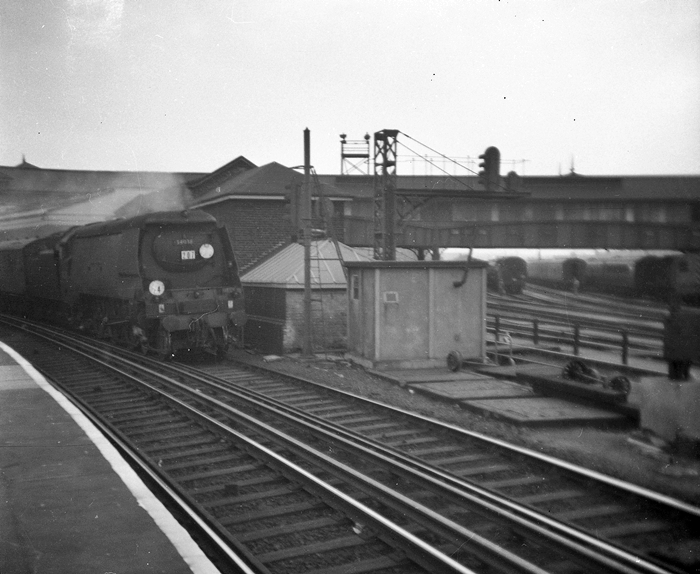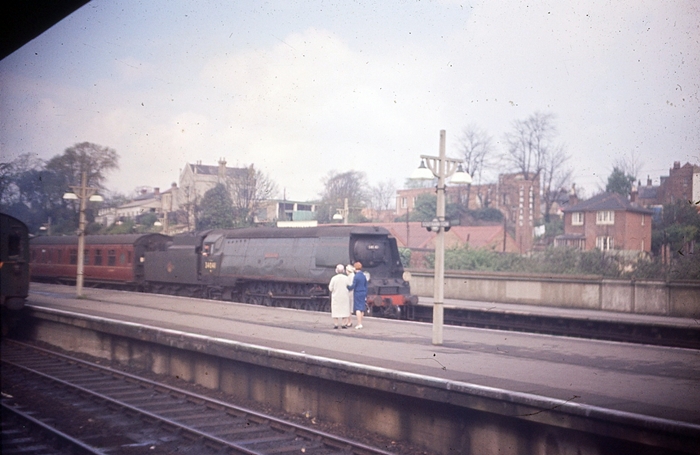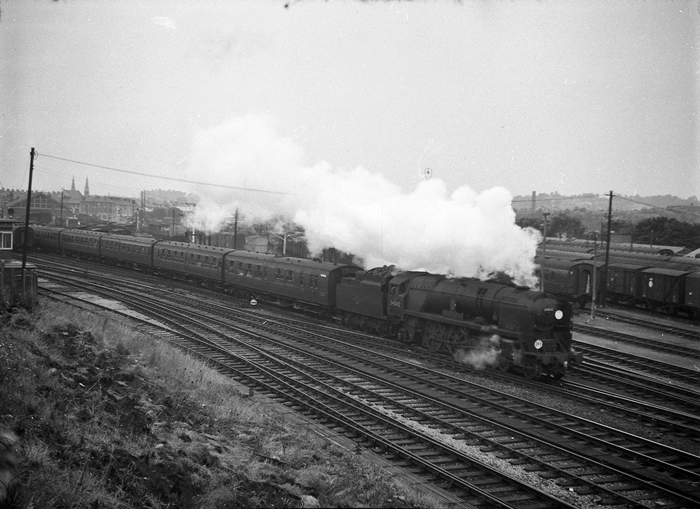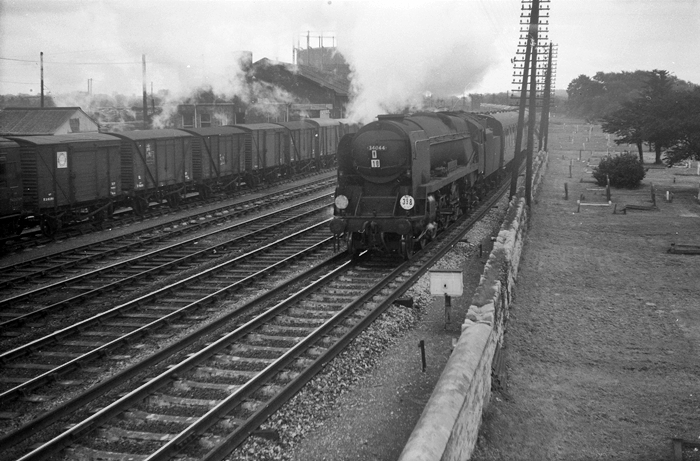
Bulleid Light Pacific
West Country / Battle of Britain Class
Nameplates & Shields
By Richard Dixon
The history is a little complicated as not all shields were fitted from the very start, but the simplest way to show them is as they were carried for most of their lives up to rebuilding, or withdrawal if not rebuilt. All engines with a shield retained them after rebuilding.
Battle of Britain
Class
Nos.
34049-34090, 34109, 34110
The situation with these is straightforward. All
carried plaques except the final one, No. 34110. Plaques depicted the RAF insignia
or squadron badge or a personal coat of arms.
Oddities
No. 34090 was unique due to the length of its name and had its plaque set on a horizontal axis. The plaque, nameplate and class plates were originally closely grouped towards the bottom of the casing but were later more widely spaced over the full height of the casing.
Nos. 34058/68 had their plaques swapped in error when they were in Eastleigh works together and are believed to have run to the end with the wrong ones.
West Country Class
The following carried shields:
Nos. 34001-21, 31, 34, 40, 42, 48, 91, 92 and 107
Nos. 34025-30, 32, 33, 35-38, 41, and 43-47
The following had no shield with the
name and class plates closely spaced:
Nos. 34022-24, 39, 93-106, and 108
Oddities
No. 34006 carried a shield with county coat of arms but changed to town coat of arms in 1950.
No. 34015 carried a shield with county coat of arms but changed to town coat of arms by Oct.’49.
No. 34026 ran for at least 8 years before getting its plates.
No. 34034 ran for a few years after naming before getting its shield (and without a space for one).
No. 34040 ran for 7 years after naming before getting its shield (and without a space for one).
No. 34046 did not have a shield but has had one added to the preserved engine.
No. 34108 originally had plates closely spaced, which for some reason were later widely spaced, though it never got a shield.
34026

Now in its twilight years on the South Western Division, No. 34026 ''Yes Tor'' is seen departing London Waterloo with a rake of BR Mk 1 carriages in tow in June 1965. The engine was withdrawn in September of the following year, having been in service for two decades. © David Glasspool Collection
34038

West Country No. 34038 ''Lynton'' is seen storming through Clapham Junction, Waterloo-bound, in about 1965. It is seen with a BR-modified flangeless tender, which allowed easier watering of the tank and improved visibility. This locomotive did not quite make it to the end of Southern steam on the South Western Division, being withdrawn in June 1966. © David Glasspool Collection
34041

No. 34041 ''Wilton'' is seen at Southampton Central, London Midland Region stock in tow, with a cross-country service from Bournemouth West to Oxford in 1964. This was a locomotive which never acquired a shield, hence the large gap in-between the name and class plates on the body side. The engine remained in service until January 1966, subsequently being dispatched to Newport, South Wales, for scrap. © David Glasspool Collection
34042

In about 1963, a grubby No. 34042 ''Dorchester'' is seen heading out of Weymouth with a Waterloo Express. Weymouth was formerly under the jurisdiction of the GWR and, subsequently, its Western Region successor. However, regional border changes in February 1958 saw the Weymouth line via Yeovil Pen Mill transfer to Southern Region control. Having been rebuilt from original air-smoothed condition in January 1959, No. 34042 was withdrawn in October 1965. © David Glasspool Collection
34044

No. 34044 ''Woolacombe'' is seen on the southern approaches to Oxford on 3rd September 1963, rumbling in with the ''Pines Express'' from Bournemouth West. This was a daily service to/from Manchester Piccadilly, which was generally fronted by a Southern Pacific between Bournemouth and Oxford. Until September 1962, this service ran over the Somerset & Dorset line, via Templecombe, Evercreech Junction, and Bath. From 10th September 1962, this train was re-routed via Basingstoke, Reading, and Southampton. Entering traffic in October 1946, No. 34044 was rebuilt in May 1960 and withdrawn exactly seven years later. It was scrapped in September 1967 at Cashmore's, Newport, South Wales. © David Glasspool Collection
Return to the Kent Rail Homepage or alternatively, check for Updates.
Website & Copyright information - Links - Contact the Webmaster
All content is copyright © David Glasspool unless otherwise stated